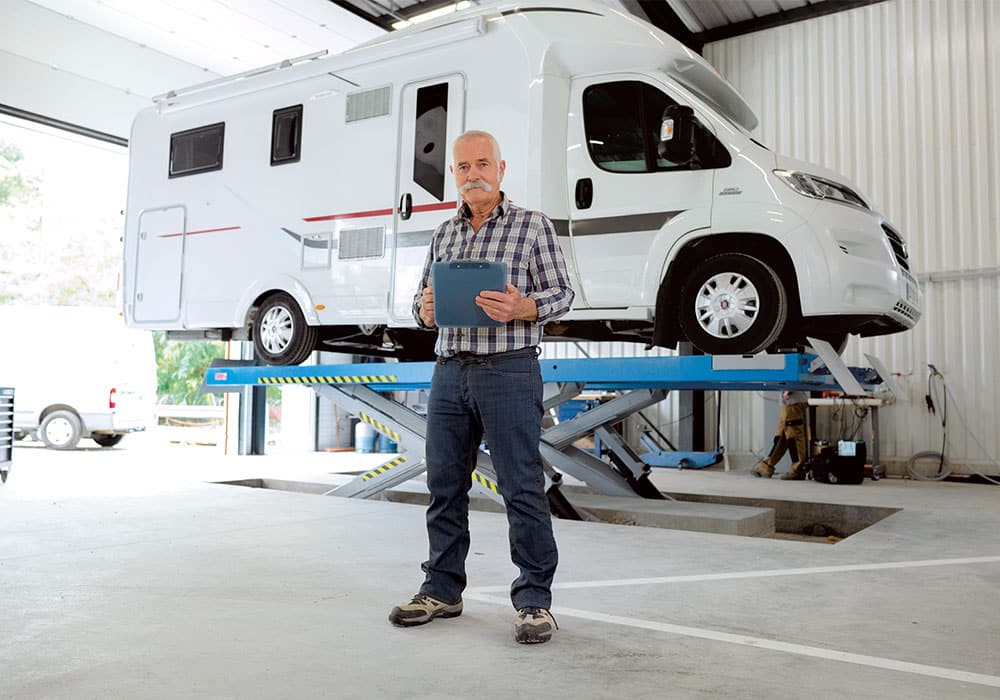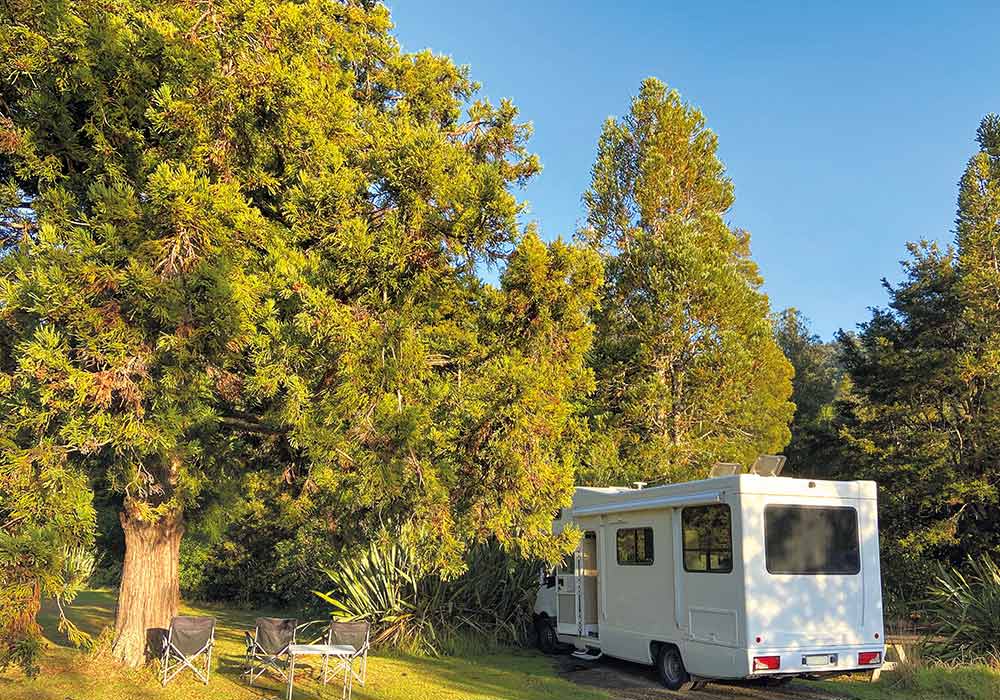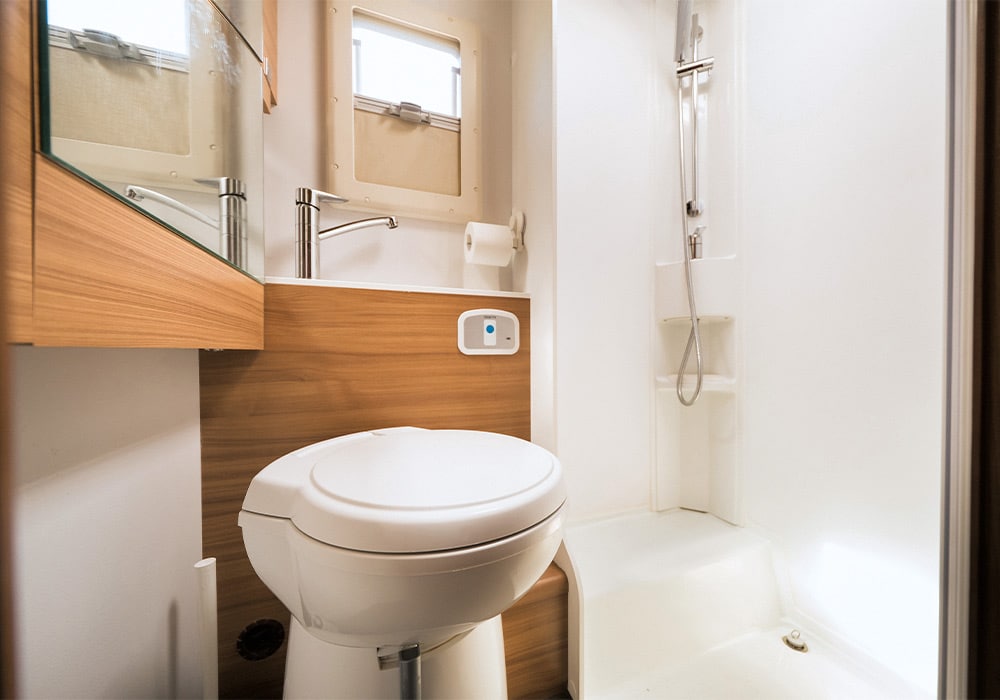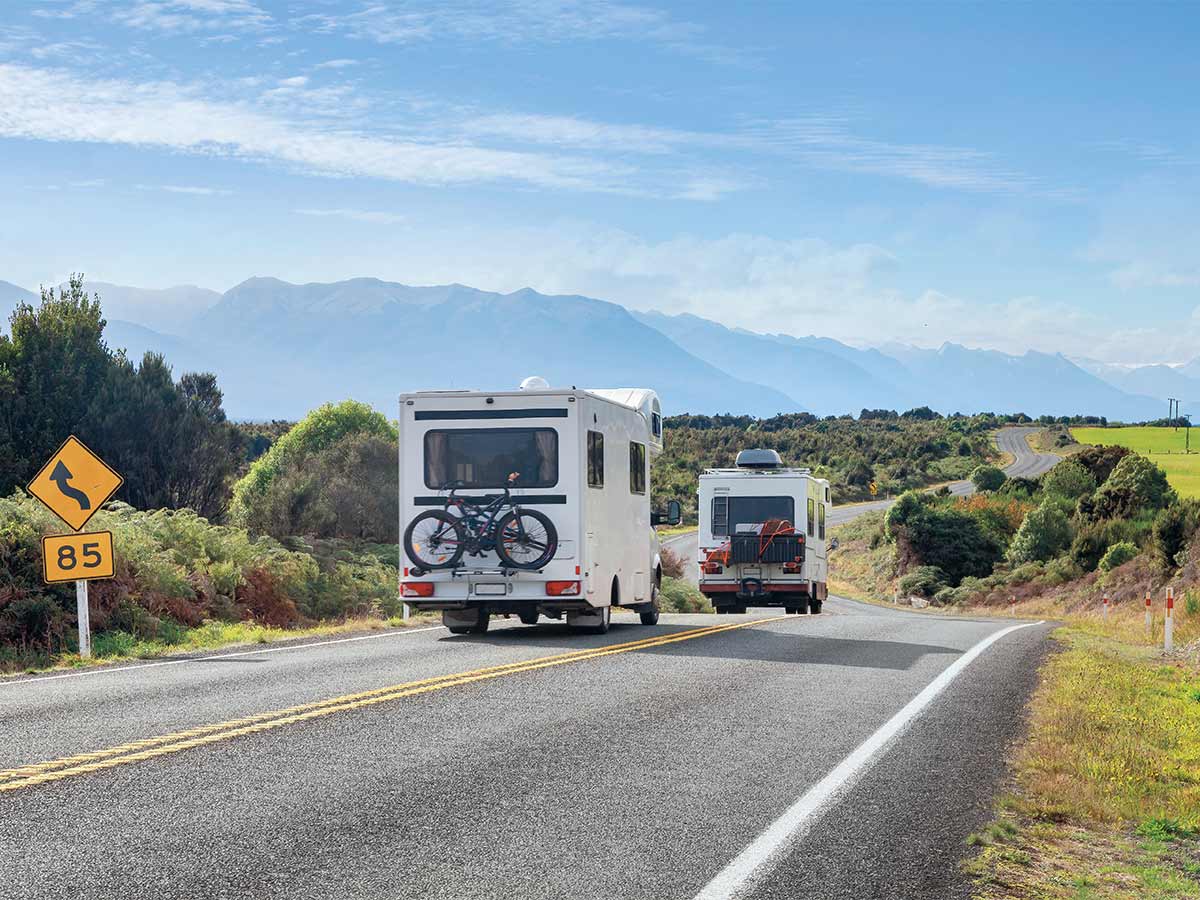Lisa Jansen takes a deep dive into the implications of new changes to the Self-Contained Motor Vehicles Legislation Act 2023 and assesses what this means for those travelling by motorhome, campervan, or caravan.
As most people involved in the RV community in New Zealand are likely aware, the certified self-contained standard is changing, with the blue stickers we’re all familiar with being replaced by green ones. However, the colour of the stickers is not the only thing that’s changing.
In this issue of Getting into Gear, we take a closer look at exactly what is changing, why, and what it means for you.
Why is the standard changing?
New Zealand has long encouraged the use of self-contained vehicles to minimise waste disposal in public spaces, and the latest updates are designed to ensure stricter adherence to these principles.
A key issue with the old certified self-contained standard was the inability to legally enforce it under national law. The standard was voluntary, and compliance depended largely on individual choice or local council regulations. While vehicles displaying the blue sticker indicated they met the standard, there was no overarching national legal framework to enforce it.
The new Self-Contained Motor Vehicles Legislation Act 2023 introduces national legal enforceability for the self-contained standard, particularly by specifying the requirements for certification and introducing penalties for non-compliance.
What is changing?
There are several changes, both in terms of the requirements an RV must meet to be certified self-contained as well as the processes and administration. The most important ones are:
The toilet must be permanently fixed
All self-contained RVs must now have a permanently fixed toilet to be certified, rather than using portable toilets, which were previously allowed. The toilet must be fitted according to the manufacturer’s instructions and be usable within the vehicle at all times, even with the bed made up. However, the requirement for cassette toilets to be externally vented, which was initially included in the standard, has since been removed after pressure from the industry and experts.
It’s worth noting that there’s still some ambiguity around exactly what makes a toilet “permanently fixed”, and there seems to be some room for interpretation by individual certifiers.
Green stickers are replacing the blue ones
The familiar blue warrant sticker will be replaced with a green warrant for certified self-contained vehicles. Vehicles with blue stickers can continue to use them until their certification expires or the grace period ends in June 2025 (December 2024 for rental campers).
Penalties are increasing and are easier to enforce
Infringement fees for non-compliance with the new certification standard have been increased from $200 to $400, and additional penalty increases are expected as part of future regulatory changes.
More oversight and enforcement
As mentioned above, the new standard will have legal enforceability, which was previously lacking. This means that vehicles must comply with all aspects of the standard to avoid fines and other penalties. The Ministry of Business, Innovation and Employment (MBIE) and local councils will be responsible for ensuring compliance.

When will the changes come into effect?
The transition to the new standards will happen in stages, with the following key dates:
7 June 2024: All newly certified private vehicles must meet the new standard and display the green warrant.
7 December 2024: All rental campers must comply with the new requirements and display the green sticker to be considered certified self-contained.
7 June 2025: All vehicles must be certified under the new standards and display the green sticker to be considered certified self-contained.
Does my RV have to be certified by the new standard?
It’s important to remember that the self-containment certification is only really relevant when wanting to freedom camp or stay on private properties that require the certification. The majority of commercial campgrounds and holiday parks have always welcomed guests in non-certified vehicles and will continue to do so.
However, for anyone who wants to freedom camp, it will be more important than ever to have their vehicle certified under the new standard to avoid costly fines.

Who is overseeing and administering the new standard?
The new Certified Self-Contained Standard is overseen and administered by the MBIE in collaboration with local councils.
MBIE is responsible for administering the legislative framework established by the Self-Contained Motor Vehicles Legislation Act 2023. It has the authority to ensure that the new certification process is implemented and enforced across the country.
Local councils are empowered to enforce compliance with the new rules, especially in areas where freedom camping is popular. Councils will have the ability to fine non-compliant RV owners and ensure that only certified self-contained vehicles camp in designated areas.

Where can I get my RV certified?
You can have your RV certified by any approved self-containment certifier across New Zealand. It’s important to ensure that your certifier is familiar with the latest requirements to avoid any issues during inspection.
The following organisations, among others, can help you find a certifier: Self-Contained New Zealand (selfcontained.co.nz); NZMCA (nzmca.org.nz/certified-self-containment-csc); NZ Lifestyle Camping (nzlifestylecamping.com).
What are the implications?
It’s hard to predict exactly what the implication will be at a national level. The big question right now is what precisely a “permanently fixed toilet” looks like. While some argue this requirement will rule out many smaller vans, there have been reports of vans getting certified under the new standard with their portable toilet permanently attached to the vehicle via a bracket or other means. Fix-A-Potty is one simple and inexpensive solution that could enable many smaller vans to meet the new requirements.
It remains to be seen whether all certifiers or only some will accept such a solution. If it becomes a widely accepted solution, it’s likely that the new standard will change very little. Should it not become widely accepted, there’s a good chance we will see fewer people freedom camping in smaller vans. As so often, only time will tell.






